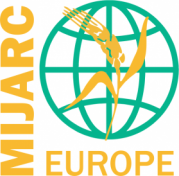SCHOOL OF INFLUENCERS – PARIS, June 2022
By Francesco Bottegal
Introduction
Advocating and campaigning for a fairer and more sustainable food supply chain in Europe and beyond: this is the essence of the OUR FOOD OUR FUTURE project.
In a society where technological progress has deeply changed the way we interact and communicate with one another, how can we use digital tools for campaigning, raising awareness and mobilising the public? What is the role of social media in advocacy, as they represent a space where information spreads instantly and on which everyone can have a say on any topic? Can we still fight effectively for what we believe in? How can we make our voices stand out in an ocean of opinions?
These are only a few questions we tackled during our last School of Influencers (SOI) activity that took place in Paris. After a first session held online at the beginning of May, we organized a presential event in Paris which lasted two days from 18th to 19th of June 2022, and turned out to be such an enriching and inspiring IN PERSON experience, as we were welcomed by our French member organisation, MRJC, in their office.
Together with 20 aspiring campaigners from all over Europe, we learnt and discussed about the EU “Farm to Fork” Strategy (or F2F) and we learnt what its current state of affairs is. After clarifying many thematic aspects of the policy at hand, the participants moved on by improving their understanding of social media campaigning, the opportunities associated with these digital spaces, with the help of our amazing trainers.
WHAT DID WE SAY ABOUT THE F2F STRATEGY?
Drawing from the conclusions attained during the online session of our School of Influencers held in May, we focused our attention on the current debate happening both within and outside the EU institutions. At the time of writing, the main item on this European agenda, that impacts us all, is the discussion on the use of synthetic pesticides in agriculture and the introduction of legally binding reduction targets.
In such a critical moment for the European transition to sustainable food system, agribusiness lobbies and a number of national governments have instrumentally used the war in Ukraine to postpone and undermine EU environmental commitments. Furthermore, this ‘hostile’ front, consisting of several actors, is engaged in fierce lobbying activity sharing partial studies (some funded by the industry itself) and deliberately spreading misleading information against the “Farm to Fork” Strategy.
UPDATE
On 22nd of June 2022, the European Commission proposed a set of new rules, to be included in a Regulation, hence in a legislative tool directly binding for all the Member States, to reduce the use and risk of pesticides in the EU, delivering on the Farm to Fork Strategy.
The main points regard the introduction of legally binding targets to reduce by 50% the use and risk of chemical pesticides by 2030; a ban on the use of all pesticides in sensitive areas and an exceptional EU support for farmers through the Common Agricultural Policy (CAP).
WHAT DID WE SAY ABOUT Campaigning on social media?
The other focal point of our weekend revolved around the notion of campaigning and how our understanding of it has changed due to technological and digital progress.
Social media have revolutionised the way we interact with one another, and how we receive and elaborate information, allowing to each of us to share our opinions and messages with thousandth, millions of people with just one click (by a single click?). The potential reach that these digital spaces offer to their users is one of the most interesting features when it comes to talking about social media as valuable means in awareness-raising and advocating.
Led by our experts, we reviewed and took inspiration from some successful campaigning efforts, such as the Patagonia Sin Ripresas and the Perwez campaigns, aiming at improving our comprehension of social media campaign dynamics. Thanks to this exercise, we appreciated how the social media landscape has provided campaigners, lobbyists and activists with a plethora of platforms that can be key in the effort to raise awareness and advocate. Looking at each platform with its features, we learned what to think of when we start devising our own campaign. We began with the difference between strategy and tactics, to continue with the elements that help us defining our target audience/s and accordingly choosing the most suitable platform to pursue our goals.
These learnings fed in our final activity, that indeed consisted of crafting and preparing a series of social media posts to raise awareness on the matter of the F2F strategy and, more broadly, on the subject of sustainability in the food supply chain, in Europe and beyond.
Conclusion
We are still enthusiastic about this session that brought together so many engaged and inspiring young people. We are going to share soon the outcomes produced by our participants. So, stay tuned and do not miss them and you’ll discover more on what MIJARC Europe and OURFOODOURFUTURE have in store for you!
This publication was produced with the financial support of the European Union. Its contents are the sole responsibility of MIJARC Europe and do not necessarily reflect the views of the European Union.
SOURCES
Agribusiness lobby against EU Farm to Fork strategy amplified by Ukraine war | Corporate Europe Observatory
Leak: industrial farm lobbies’ coordinated attack on Farm to Fork targets | Corporate Europe Observatory
Nature and human health cannot afford policy delays | Corporate Europe Observatory
Farm to Fork (europa.eu)
What it is about – Our Food Our Future (ourfood-ourfuture.eu)
